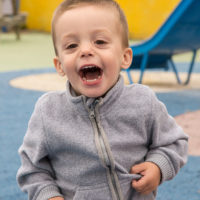Search results
-

Can physical exercise improve tics and associated mental health difficulties in Tourette syndrome? The jury is out
Physical exercise is increasingly being recommended as part of management for children and young people with mental health problems. There is a growing evidence base that shows physical exercise is associated with improvements in functioning for conditions such as attention deficit hyperactivity disorder (ADHD), although studies are small, they are signifcant.
Read more -

Most Cited JCPP Articles #56 of 60
Most cited JCPP papers #56 of 60: Multicultural assessment of child and adolescent psychopathology with ASEBA and SDQ instruments: research findings, applications, and future directions
Read more -

Tourette Syndrome edition
Welcome to the February 2019 edition of The Bridge. The focus of this edition is Tourette Syndrome, a condition, which has much stigma attached, stereotyped views by society about what it means and a lack of national clinical guidance.
Read more -

Improvements of adolescent psychopathology after insomnia treatment: Results from a randomized controlled trial over one year.
Many adolescents experience sleep problems, which can be caused by hormonal changes during puberty, and social changes with increasing complexity of daily life while growing up.
Read more -

Sleepiness in adolescence is associated with criminal behaviour in adulthood
Poor sleep seems to be associated with antisocial and criminal behaviour, but the longitudinal nature of this relationship is unclear.
Read more -

The Importance of Representing Dissociative Identity Disorder in Fiction and Media for Children
Dissociative Identity Disorder (DID) is a condition that most of us have heard about, but when we break it down, many of us don’t quite understand what it truly is and how it can affect individuals.
Read more -

Parent-delivered teaching supports children’s early language development
This article is a summary of the paper ‘An evaluation of a parent-delivered early language enrichment programme: evidence from a randomised controlled trial’ by Burgoyne et al. (2018), published in the Journal of Child Psychology and Psychiatry.
Read more -
Adult ABMT protocols need adapting for effective use in children
Attention bias modification treatment (ABMT) aims to target attention biases in threat processing in patients with anxiety1. While ABMT seems to be effective in adults with social anxiety disorder (SAD),2,3 its effect in youths with SAD and the potential treatment moderators are unclear. In 2016, Lee Pergamin-Hight and colleagues conducted a randomised controlled trial to explore the efficacy of ABMT in youths and the influence of possible moderators of treatment outcomes.
Read more -

Meta-analysis of secondary anxiety prevention
Dr Peter Lawrence summarises the paper ‘Prevention of anxiety among at-risk children and adolescents – a systematic review and meta-analysis’
Read more -

Children with a Specific Phobia do better in Individual CBT than Group CBT and guided parent-led CBT
Children often present to health care settings with highly impairing and disabling anxiety disorders, including Specific Phobia, Social Anxiety Disorder, Generalised Anxiety Disorder and Separation Anxiety Disorder.
Read more